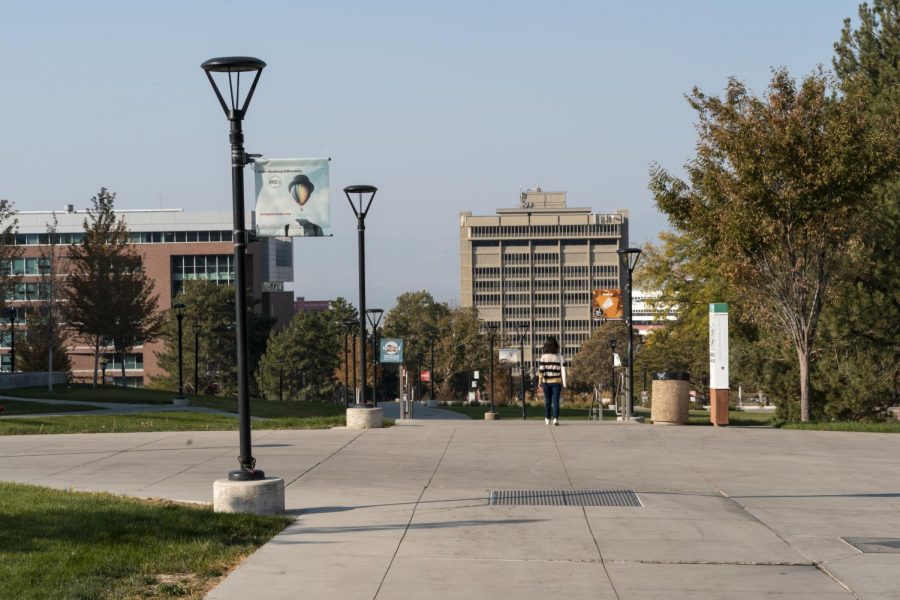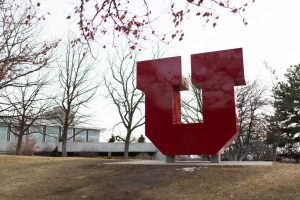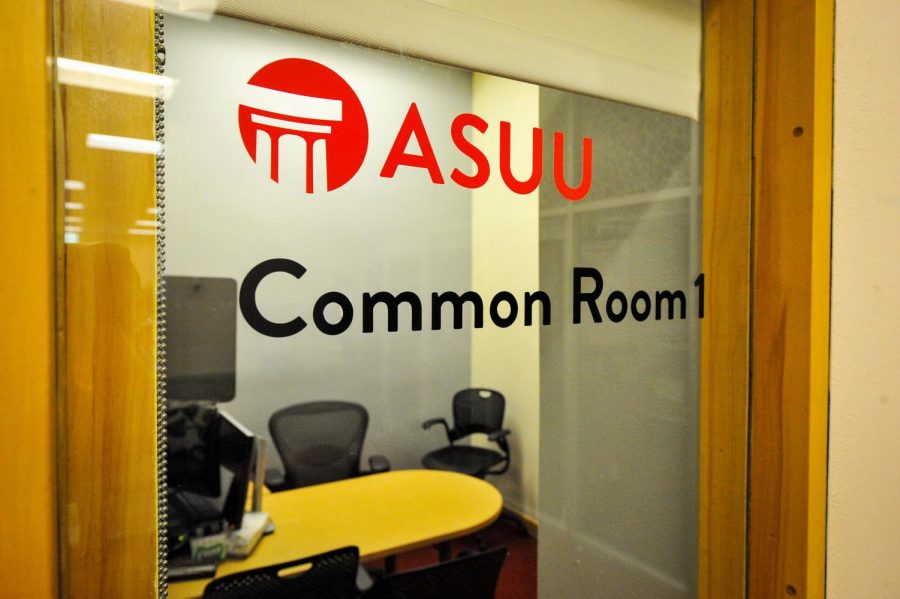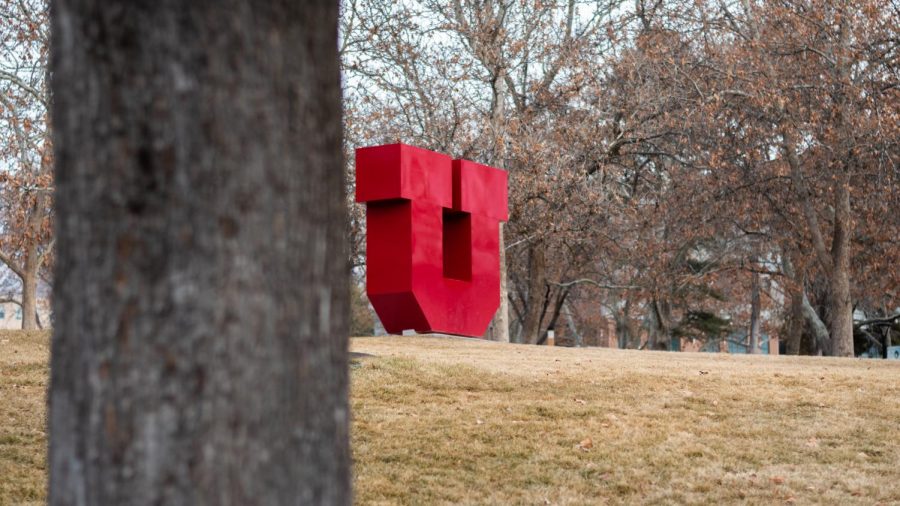Student Involvement in U Studies Provides Great Opportunity and Benefits Community, Professor Says
University of Utah Campus in Salt Lake on Oct. 11, 2020. (Photo by Jake Stranzl | The Daily Utah Chronicle)
February 25, 2023
For students who want to contribute to their community or conduct research on new topics, the University of Utah Study Locator provides a gateway to do so.
With over 10 categories of studies, students can participate in and generate research that ranges from COVID-19 surveys to in-person heart research.
Joni Pierce, a fifth-year doctorate student studying biomedical informatics, said many of these studies revolve around answering new questions either through surveys or through active experimental research with participants.
“Generally when we’re conducting research studies, we’re trying to produce original research to advance the knowledge levels that we have,” Pierce said.
The research conducted at the U is also very innovative, said Aaron Fischer, an endowed professor of school psychology. This is because the U is a Research 1 institution, so they receive federal funding for their research. This classification allows for there to be a larger amount of opportunities for students to conduct their own research, Fischer said.
“What’s so great about our university being a Research 1 institution is that there are so many great chances for undergraduate students, graduate students to get involved with research, whether that be as participants or as research assistants,” Fischer said.
When students join or conduct a study, there is no long-term commitment past coordinating the research for that study, according to Fischer, which allows students to explore research opportunities even if they are unsure if they want to pursue it in the future.
“It’s a really exciting opportunity for folks to just have kind of an appetizer or a taste of what research can be like without having to commit too much to it,” Fischer said.
For doctorate students who are graduating and want to work in research fields, conducting research studies is important in helping build their resumes, said Pierce. And, the research and grant opportunities the U provides to these students can help them accomplish this.
“If you think about the academic future, and if you want to go on and do a postdoc and work in an academic setting, it is absolutely critical to see that you’ve been publishing and that you know the process,” Pierce said.
If a student is planning on conducting research at the U in the future or wants to create their own study, participating in the studies currently offered is vital to gaining experience on how these research opportunities work.
“[Participating in studies] might spark ideas for them about their own areas of interest for future studies,” Pierce said. “They can see it actually operationalized so you’re getting practical experience because you’re the participant, but you’re kind of seeing how the researchers are doing that work.”
Fischer said the community can benefit immensely and see active change from these research studies, which is why student participation in these studies is so vital.
“At least like speaking for the research that we do through our lab, it’s really community driven and community informed,” Fischer said. “Because we’re doing applied research, we look at real problems that exist within our communities, not just here locally in Salt Lake but also across the state.”
According to Pierce, students themselves may even be able to benefit from the research studies being done, and by participating in these studies, it allows for them to be represented and heard by the researchers and larger medical companies.
“Because you’ve had your voice heard, you may actually benefit from the fruits of the research,” Pierce said. “When you provide your feedback and your voice, we can better understand what’s important to somebody like that, and then tailor the solutions to actually meet those needs.”
Fischer said students who participate help engage with their community, but their involvement could also allow them to be compensated for their time.
“There are many times that people are implementing paid or funded projects,” Fischer said. “Through our research, when we recruit research assistants, we’re paying them for their time because our funding sources allow us to compensate folks accordingly.”
Fischer encouraged students to get engaged with the studies on campus and realize the importance of this research for the community.
“I would really encourage them to really look at projects that have that community-leading focus because I think one of the most amazing things you can do through community-engaged research is build partnerships and really create connections with people,” Fischer said.












